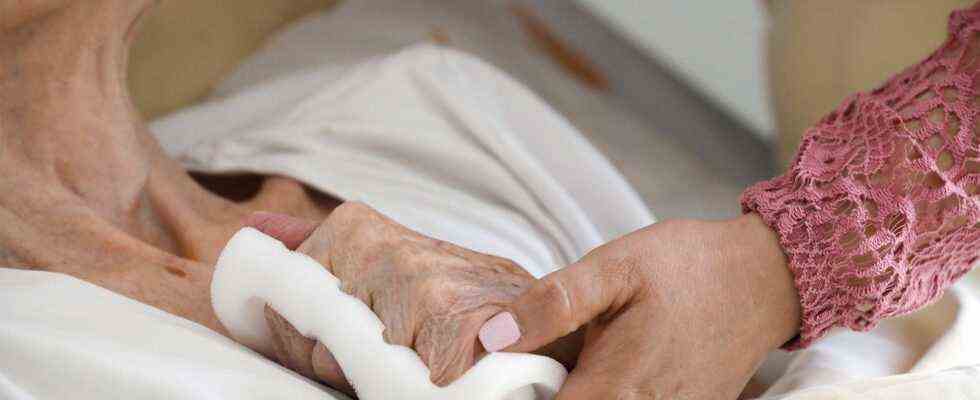Status: 29.06.2021 12:35 p.m.
According to a study by the AOK, mortality in nursing homes rose significantly during the pandemic. The infection protection was inadequate, according to the researchers. The Patient Protection Foundation also criticizes the nursing staff.
The mortality of residents in nursing homes in Germany rose dramatically in the first two waves of the pandemic. This is shown in the Care Report 2021 from the Scientific Institute of the AOK (WIdO).
Around three weeks after the start of the first lockdown in spring 2020, mortality was already 20 percent higher than the average for previous years. In the first three months of the second wave of pandemics from October to December 2020, it exceeded the level of previous years by an average of 30 percent.
In the 52nd calendar week of 2020, excess mortality peaked at 80 percent. “The infection protection measures during the pandemic were not sufficient to adequately protect the people in need of care living in the home,” said Antje Schwinger, head of the nursing research department at WIdO. This must be taken into account for future pandemic concepts as well as the significant health consequences for those in need of care , especially the psychological stress caused by the isolation.
No contact, too little movement
According to a relatives survey that is part of the care report, it was not possible for 43 percent of the relatives surveyed to have personal contact with those in need of care between March and May 2020. For another 30 percent, this option was seldom given.
According to the information provided by the caregivers, 16 percent of those in need of care were unable to leave their own room, and a further 25 percent were only rarely able to do so.
A critical picture of care
The relatives noticed clearly negative changes in the condition of the person in need of care during the pandemic. More than 70 percent report more frequent feelings of loneliness and loneliness on the part of the person in need of care, more frequent depression and listlessness, a deterioration in mental fitness and reduced mobility.
Overall, the investigation paints a critical picture of care. Measures designed to protect those in need of care from Covid-19 led to significant cuts in care and severe social isolation, according to Schwinger. Under no circumstances should there be another general isolation of old women and men from the outside world and their relatives.
“Expelled the devil with the Beelzebub”: Iris Sayram, ARD Berlin, on the sobering balance of the care report
tagesschau24 4:30 p.m., June 29, 2021
Low willingness to vaccinate among the nursing staff
Meanwhile, the German Foundation for Patient Protection criticized the nursing staff’s insufficient willingness to vaccinate. At least 80 percent would have to be vaccinated to keep the virus out of the facilities, said board member Eugen Brysch rbb. But this is not the case. “We are experiencing that the willingness to vaccinate is not particularly high among geriatric care staff. And that is very worrying, we urgently need to rework,” said Brysch.
He believes compulsory vaccination is the wrong way to go. In the case of relatives of people in need of care, the willingness to vaccinate is significantly higher than that of the nursing staff, added the patient advocate. Provisions must already be made for the autumn and possible new corona outbreaks in homes.
AOK study on the situation in nursing
Jan Henrich, SWR, June 29, 2021 10:33 a.m.

